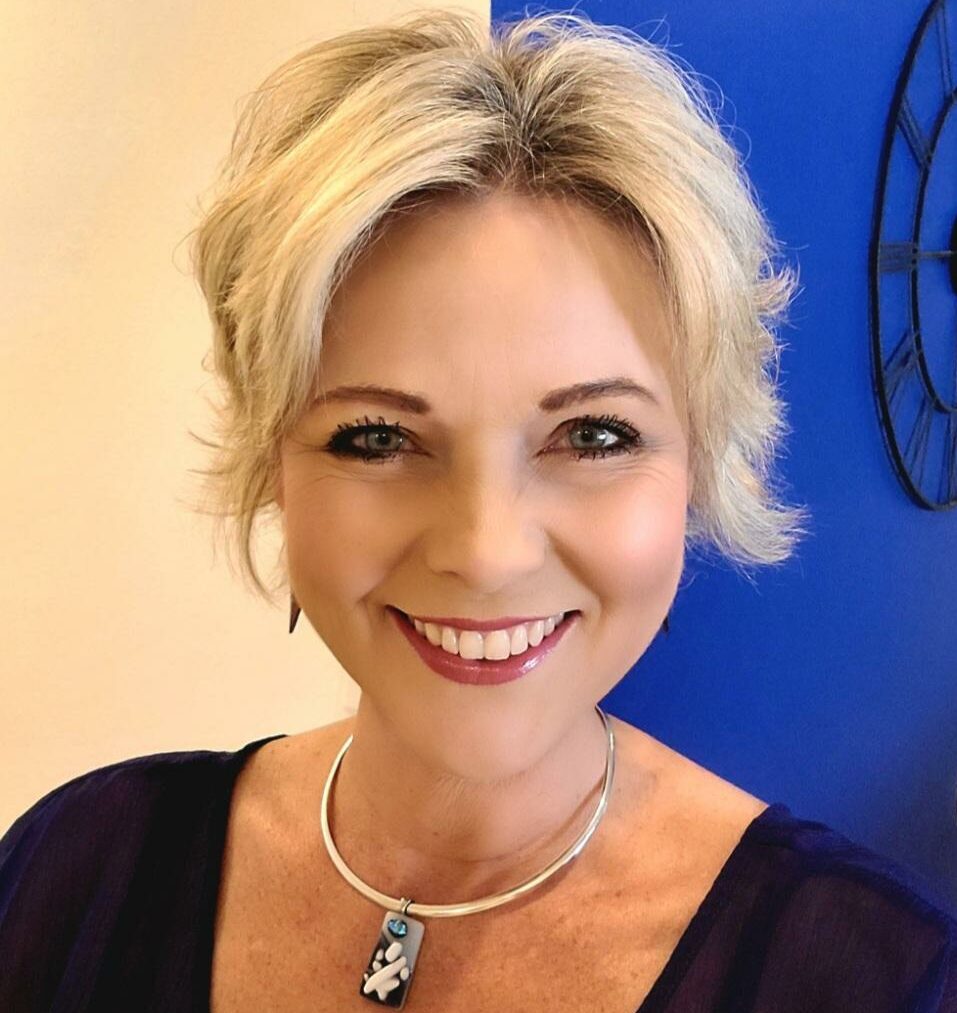In 2010, before I’d ever heard the name Dorothy Sayers, someone whom I had never met challenged me to homeschool my children using a classical education approach.
Pause. Problem: I wasn’t homeschooled. I wasn’t educated classically. I wasn’t trained to be a teacher.
Even with my lack of training and skill set, she still invited me to start a Classical Conversations® community with her, where we would learn together with our children and model this mysterious classical approach.
Being part of a community was a start, but I needed more help, and who better to turn to than two modern pioneers of classical education? If you happen to be a Licensed Director with Classical Conversations, you’re most likely already familiar with the names Dorothy Sayers and Leigh Bortins. I wasn’t. There were no pegs in my brain to hang a single grammar fact about either woman! But that would soon change.
Following some great advice, I read Sayers’s famous speech, “The Lost Tools of Learning.” Oh boy. At the time, I understood maybe 10 percent of what I’d read. But I kept at it (repetition is the key to learning, after all) until I grasped its meaning. And that changed everything.
I was on my way to laying the foundation.
Dorothy Sayers: A Pioneer in Classical Education
Dorothy Sayers’s (1893–1957) legacy lives through the inspiring words she left behind for us to read. One of the first women to be awarded a degree from Oxford University, she went on to write sixteen novels, ten plays, six translations, and twenty-four works of non-fiction.1Lindsey Scholl, “The Remarkable Dorothy L. Sayers,” C.S. Lewis Institute, June 7, 2018, https://www.cslewisinstitute.org/resources/the-remarkable-dorothy-l-sayers/ She is most known for her mystery novels that feature the whimsical sleuth, Lord Peter Wimsey.2Ann Kennedy Smith, “Dorothy L. Sayers’s Graduation Day,” Cambridge Ladies’ Dining Society 1890–1914, October 17, 2020, https://akennedysmith.substack.com/
Dorothy Sayers’s life was dedicated to the written word. She was a copywriter for an advertising agency as well as a poet. She advocated for women’s liberty.3“About Dorothy L Sayers,” Dorothy L Sayers Society, accessed June 6, 2022, https://www.sayers.org.uk/biography. She passionately shared the gospel of Jesus Christ (despite some criticisms of her modern English translations). She was even a friend to C. S. Lewis!4David Downing and Crystal Downing, “C.S. Lewis and Dorothy L. Sayers: A Feisty Friendship,” Wade Center, May 10, 2019, YouTube video, 57:03, https://youtu.be/ZHu3h7xN4DI.
And, of course, she was a pioneer of the classical education movement in the modern era.
Authority and Credentials
Did Dorothy Sayers have any credentials? On whose authority did she criticize modern education and propose a solution? In the opening line of her “Lost Tools of Learning” speech delivered to a group of Oxford students and faculty in 1947, Sayers states, “That I, whose experience of teaching is extremely limited, and whose life of recent years has been almost wholly out of touch with educational circles, should presume to discuss education is a matter, surely, that calls for no apology.”5Dorothy Sayers, “The Lost Tools of Learning” (London, 1948: E.T. Heron; Project Gutenberg Canada, 2008), p. 2, https://classicalconversationsbooks.com/products/the-lost-tools-of-learning-pdf
Um… what? If you’re like me, you probably scratched your head while reading that. Is she saying that she’s not going to apologize for her lack of teaching experience while presuming to discuss education?
Well, yes. That’s exactly what she’s saying.
A few breaths later, Sayers continues, “There is also one excellent reason why the veriest amateur may feel entitled to have an opinion about education. For if we are not all professional teachers, we have all, at some time or other, been taught. Even if we learnt nothing — perhaps in particular if we learnt nothing — our contribution to the discussion may have a potential value.”6Sayers, “Lost Tools,” 2.
Okay, now that makes sense (aside from “veriest”). We’ve all experienced education in one form or another. Maybe that’s enough for us to build our understanding of the subject at hand.
Read: “Are You Qualified to Homeschool Your Child?”
What Does Dorothy Sayers Say About Modern Education?
Before concluding her introduction, she assures her listeners that nothing will come of this speech, “This prospect need arouse neither hope nor alarm. It is in the highest degree improbable that the reforms I propose will ever be carried into effect.”7Sayers, 3.
Ah-ha! Now she’s got our attention. She has something to say about education, but she doesn’t expect it to change our education system. Why? Speaking to a post-WWII generation, she said:
For we let our young men and women go out unarmed, in a day when armour was never so necessary. By teaching them all to read, we have left them at the mercy of the printed word. By the invention of the film and the radio, we have made certain that no aversion to reading shall secure them from the incessant battery of words, words, words.
They do not know what the words mean; they do not know how to ward them off or blunt their edge or fling them back; they are a prey to words in their emotions instead of being the masters of them in their intellects.
We who were scandalized in 1940 when men were sent to fight armoured tanks with rifles, are not scandalised when young men and women are sent into the world to fight massed propaganda with a smattering of “subjects”; and when whole classes and whole nations become hypnotised by the arts of the spellbinder, we have the impudence to be astonished.
We dole out lip-service to the importance of education — lip-service and, just occasionally, a little grant of money; we postpone the school leaving-age, and plan to build bigger and better schools; the teachers slave conscientiously in and out of school-hours, till responsibility becomes a burden and a nightmare; and yet, as I believe, all this devoted effort is largely frustrated, because we have lost the tools of learning, and in their absence can only make a botched and piecemeal job of it.8Sayers, 9.
Well, that’s eye opening. We’ve lost the tools of learning. Can we get them back?
We have lost the tools of learning.
– Dorothy Sayers
The Lost Tools of Learning and The Trivium
Sayers believes we can: “What, then, are we to do? We cannot go back to the Middle Ages. That is a cry to which we have become accustomed. We cannot go back — or can we?” She then lays out the ways in which we can recover education through the trivium.
I am convinced.
Leigh Bortins is convinced, too. Leigh churned over every word in that speech more than twenty-five years ago. Like me, Leigh wasn’t homeschooled, wasn’t educated classically, and wasn’t trained to be a teacher. Leigh and her husband were engineers with a young family and no plan to homeschool. Yet there was something about this speech that stirred her to take up the mantle and restore the tools of learning. The trivium: grammar, dialectic, rhetoric. This tool is just that, a tool. “The trivium is by its nature not learning, but a preparation for learning.”9Sayers, 10.
Taking on this mantle led Leigh to launch Classical Conversations. She, along with many others, developed a curriculum to model classical education. Her strenuous and painstaking efforts helped those like me follow the forgotten path that Dorothy Sayers had rediscovered and then paved for us. And like Dorothy Sayers’s passion for Christ, Leigh’s passion to share the gospel is evident in the mission of Classical Conversations: to know God and to make Him known.
The classical, Christian education movement is here. I am grateful to all those who journeyed before me. My family reaps the fruits of their labor. And I’m grateful to be a part of the solution. Let’s continue our journey together and take part in carrying the mantle. Let’s press on and educate our children using the tools from the trivium.
Read: “What Is the Trivium?”
Taking Up the Mantle: Take the Next Steps
If you’ve found encouragement in this post and want to join me on the journey of the classical, Christian education movement, consider reading Dorothy Sayers’s entire speech, “The Lost Tools of Learning,” available as a free download here and on the Classical Conversations bookstore. If you’d prefer a physical copy, you can find the “The Lost Tools of Learning” in the appendix of Classical Christian Education Made Approachable.
Download: “The Lost Tools of Learning”





